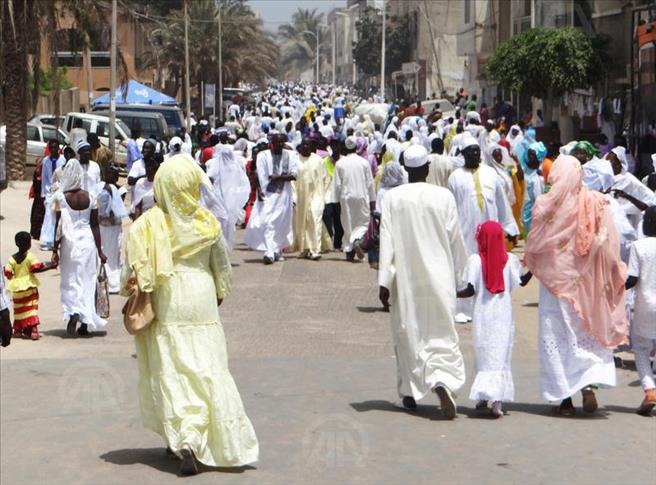Rethinking our holidays

The aftermath of major religious festivals such as Tabaski is always a sight to behold in our country. The capital is half-empty, with many people having joined their families for the holiday to commune with their loved ones, and above all to enjoy a break after a whole cycle of hard work. The movement of people from rural areas to urban centres or regional capitals, where most of our country’s economic activity is concentrated, is the schematization of all flows and movements of people. . This fact must necessarily be taken into account to put into perspective the emptiness that inhabits our capital and the country’s major cities the day after religious holidays. The whole debate on bus rotations to reach the hinterland, with the rise in transport prices and the State’s interventionism to facilitate people’s movement, gives a clear idea that a not inconsiderable proportion of those who live in the capital, Dakar, do so mainly for economic and professional reasons. To this should be added a legion of players in the formal economy who empty the streets and markets, lending credence to the emptiness of the cities.
Read the column – Contempt that prepares for the worst
Many grievances are voiced every day after a holiday, with economic activity slowing down, services operating only partially or coming to a complete halt in certain sectors, just long enough for the capital to repopulate itself. We can point to the Senegalese people’s relationship with the cult of work to express a certain laxity, but I’d argue more for adapting the organization of public holidays resulting from religious festivals to the country’s socio-cultural reality. By opting for a formula that is consistent with the country’s reality, we’ll be able to accurately assess a refusal to work, a general laziness or a conscious desire to block the economy.
Read the column – General Kandé’s star will continue to shine
Our country is a country of worship, with Muslims and Christians making the religious festivals of these communities an important part of the nation’s cultural life and agenda. Over and above their religious dimension, these festivities also serve as a social bond, consolidating certain community dynamics. The range of activities and festivities that surround the celebration of Tabaski in Serer land, Lebou country, Fouta or Casamance, gives an idea of a major moment when a social life is created for our national communities. This cannot be avoided by settling for a rigid agenda that takes no account of the socializing and constructive dimensions of national holidays. Some form of indulgence or understanding is needed to ensure that holidays do not systematically rhyme with a total blockage of economic activity or a refusal to work.
Read the column – For the People to Judge in the Place of Magistrates
Our country’s holiday regime is governed by law no. 74-52 of November 4, 1974 on national holidays and other public holidays. This law, passed by the National Assembly, has been adjusted over the years to bring it more into line with the country’s dynamic. It was followed by law no. 83-18 of February 1983, and more recently by law no. 2013-06 of December 11, 2013, which stipulates that a single day is to be declared a paid public holiday. This day corresponds to the day on which the holiday is celebrated, but a little subtlety has been added to the text of the law to stipulate that with major religious holidays such as Tabaski, Korité, Easter and Pentecost, the following Monday is automatically a holiday when they fall on a Sunday.
[themoneytizer id= »124208-1″]
Far from making us legislators, this prescription deserves to be revised to be more in tune with the country’s reality. I can already see business leaders, employers and employers’ associations at my throat. Senegal has between 35 and 36 public holidays a year, so we’re going to apologize for too many and for an anti-economic logic. However, I think it’s more productive for a country to come to a collective halt and agree on a joint recovery within reason, than to have a country at a standstill, waiting for a world to furnish the big cities and relaunch activities. China and the United States of America have succeeded in arranging public holidays for the most important dates on their national calendars so that, at the end of the prescribed periods, all activities resume a normal cycle. Our country could try to emulate them.
Read the column – Lessons on African Pride from our Superintendent of Finance, Adesina
President Macky Sall had the foresight, in 2013, to officially declare the Magal de Touba a public holiday (see decree n°2013-06 of December 11, 2013) for an activity that not only attracts people, but also shifts the country’s economic pulse for a day, while emptying the big cities of their people. There’s no shortage of opportunities with Senegal’s major religious holidays to find convenient formulas, combining the need to keep the economy running with the freedom for people to celebrate and enjoy days out to get around. This is just the beginning of our thinking, and experts in the field will undoubtedly come to the rescue to enlighten us on a way of rethinking our public holidays.
By Serigne Saliou DIAGNE / saliou.diagne@lequotidien.sn

